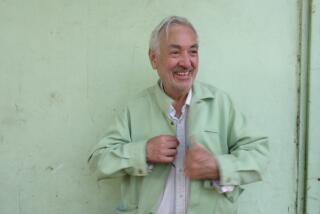ARTS WATCH : Undue Influence
- Share via
A General Services Administration building due to open next month in Los Angeles will be named for Rep. Edward R. Roybal, who chairs a House subcommittee that approves funding for the GSA. Funding fears may explain why, within hours of Roybal’s complaint against Tom Otterness’ sculpture “The New World,” key portions of that work were removed by GSA regional administrator Edwin Thomas.
The arts community is understandably outraged. Some have invoked the Visual Artists’ Rights Act of 1990, which protects artists from alterations of their work. But this raw exercise of political clout can be objected to on political grounds as well.
“The New World” was commissioned and approved by a panel that included UCLA Art Department Chairman Henry Hopkins and subsequently was approved by the GSA itself.
Roybal could easily have voiced his opinion long ago. If, on its merits, the work is now to be judged inferior and unsuitable (the removed figures are nude), then that judgment should be rendered in a similarly formal and public way. And the judgment must then, necessarily, address the complex installation as a whole, not just the chunks that Roybal dislikes.
In the meantime, the missing pieces should be replaced. Politicians are entitled to artistic opinions, just as artists are entitled to political opinions. But when the two intersect, as they do when art is commissioned for a public building, there is no alternative to due process. The GSA building is not, after all, the congressman’s living room.
More to Read
The biggest entertainment stories
Get our big stories about Hollywood, film, television, music, arts, culture and more right in your inbox as soon as they publish.
You may occasionally receive promotional content from the Los Angeles Times.










